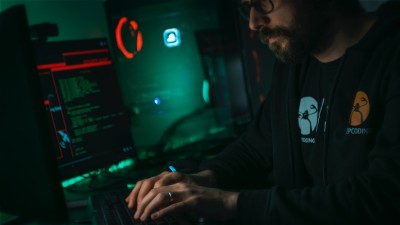International tuition fee
$50,000
School address
101-148 ALEXANDER ST
Online or distance education
No
Conditional admission
Yes
Number of graduate students
10
Number of undergraduate students
20
Study method
Full-time,part-time
Quick facts about our school
The UBC First Nations Legal Clinic is a unique legal clinic that provides free legal support and services to Indigenous peoples in British Columbia. Based at the University of British Columbia's Allard School of Law, the clinic is run by law students under the supervision of experienced lawyers. The clinic focuses on addressing legal issues in areas such as family law, criminal law, and Indigenous rights, with a commitment to serving the specific needs and interests of Indigenous communities.
Through its innovative approach, the UBC First Nations Legal Clinic not only provides much-needed legal assistance to Indigenous peoples, but also offers law students valuable hands-on experience and training in the context of Indigenous law and legal issues. The clinic plays a crucial role in supporting the empowerment of Indigenous communities by ensuring access to justice and advocating for Indigenous rights within the legal system. By bridging the gap between legal education and real-world Indigenous legal issues, the UBC First Nations Legal Clinic helps to build a more just and inclusive legal system for Indigenous peoples in British Columbia.
School highlights
Life at our school
Life at the UBC First Nations Legal Clinic is dynamic and fulfilling. Students have the opportunity to work directly with Indigenous clients, providing legal advice and assistance under the supervision of experienced lawyers. The clinic focuses on addressing legal issues affecting Indigenous communities, allowing students to gain hands-on experience in Indigenous law and advocacy.
The atmosphere at the UBC First Nations Legal Clinic is supportive and collaborative, with students working together to navigate complex legal challenges. They have the chance to engage with Indigenous legal traditions and learn from Elders and knowledge keepers. The experience gained at the clinic not only prepares students for a career in law but also fosters a deep understanding and respect for Indigenous legal systems and cultural practices.
The UBC First Nations Legal Clinic is a vital resource that provides free legal services to Indigenous people in British Columbia. Located at the Peter A. Allard School of Law at the University of British Columbia, the clinic is dedicated to supporting the legal needs of Indigenous communities and individuals. With a focus on promoting access to justice and advocating for Indigenous rights, the clinic plays a crucial role in advancing reconciliation and addressing systemic inequalities in the legal system. Through its collaborative and culturally sensitive approach, the UBC First Nations Legal Clinic demonstrates a commitment to empowering Indigenous peoples and promoting positive change within the legal profession.
The UBC Indigenous Legal Clinic is dedicated to advancing Indigenous peoples' legal rights and supporting the community through legal services, education, and advocacy. With a focus on empowering Indigenous voices and promoting self-determination, the clinic offers assistance in various legal matters, including Indigenous law, land rights, governance, and more. Through its initiatives and partnerships, the UBC Indigenous Legal Clinic is committed to working towards a sustainable future that values and respects Indigenous knowledge, culture, and rights.
The UBC First Nations Legal Clinic envisions a future where Indigenous peoples have access to culturally respectful and community-based legal services that empower them to exercise their rights and revitalize their legal traditions.
- Providing culturally respectful legal services to Indigenous communities
- Empowering Indigenous peoples to exercise their rights
- Revitalizing Indigenous legal traditions
- Building a strong and supportive legal community for Indigenous peoples
The UBC First Nations Legal Clinic (FNLC) provides a unique and enriching campus experience for students interested in indigenous law and social justice. Located at the Allard School of Law at the University of British Columbia, the FNLC offers students the opportunity to engage directly with indigenous communities, hone their legal skills, and advocate for the rights of First Nations peoples. The clinic provides valuable hands-on experience through legal research, writing, and advocacy work, allowing students to apply their classroom learning to real-world cases and issues. Additionally, the FNLC fosters a supportive and inclusive community that encourages collaboration, cultural understanding, and respect for indigenous traditions and perspectives. Students who participate in the UBC FNLC gain a deeper understanding of indigenous legal issues, develop practical legal skills, and contribute to meaningful social change.
Programs offered at our schools
The UBC First Nations Legal Clinic offers a variety of programs to support undergraduate and graduate students interested in pursuing a career in Indigenous law. For undergraduate students, the clinic provides opportunities for hands-on experience in legal research, writing, and advocacy through internships and externships. These programs aim to equip students with practical skills and knowledge in Indigenous legal issues and help them develop a deeper understanding of the complexities of Indigenous law.
For graduate students, the UBC First Nations Legal Clinic offers advanced training and mentorship in Indigenous law, preparing them for careers in legal practice, research, and advocacy. The clinic also collaborates with Indigenous communities and organizations to provide students with opportunities to engage with real-world legal cases and contribute to Indigenous legal initiatives. Through these programs, students can gain valuable experience in the field of Indigenous law and make meaningful contributions to the advancement of Indigenous rights and justice.
The admission process at the UBC First Nations Legal Clinic involves students applying to the clinic through an application process. The clinic typically looks for students who have a strong interest in working with Indigenous communities and who are committed to advancing Indigenous rights and access to justice. Students may need to provide a statement of interest, letters of recommendation, and academic transcripts as part of their application. Once admitted to the clinic, students will have the opportunity to work on real legal cases, gaining practical experience in areas such as Indigenous land rights, treaty rights, and Aboriginal law. The UBC First Nations Legal Clinic offers a unique opportunity for students to engage with Indigenous legal issues and make a meaningful impact in the community.
The undergraduate admissions process at the University of British Columbia (UBC) for the First Nations Legal Clinic involves a holistic review of each applicant's academic achievements, personal experiences, and future goals. In addition to meeting the general admission requirements of the university, prospective students applying to the First Nations Legal Clinic are encouraged to demonstrate a strong commitment to Indigenous issues and a passion for social justice. Through their application materials and personal statement, candidates have the opportunity to showcase their leadership abilities, community involvement, and relevant experiences that align with the mission of the clinic. The admissions committee carefully considers each applicant's potential to contribute positively to the Indigenous legal community and to thrive in the rigorous academic environment of UBC's Faculty of Law.
The University of British Columbia's First Nations Legal Clinic, located in Vancouver, Canada, is committed to providing legal assistance to Indigenous communities. The admission requirements for the clinic's services may vary, but typically, individuals seeking assistance must be members of a First Nations community and in need of legal support related to issues such as land claims, treaty rights, or governance matters. Prospective clients may be required to fill out an intake form and provide relevant documentation to demonstrate their eligibility for services. The clinic aims to support Indigenous individuals and communities in navigating the legal system and advocating for their rights.
The Graduate Admissions at the UBC First Nations Legal Clinic provide an opportunity for students to gain practical experience in Indigenous legal issues through hands-on training in a real-world setting. Here are a few key points related to the admission process at the UBC First Nations Legal Clinic:
- Applicants must be current law students at the University of British Columbia or another recognized institution.
- Interested students are required to submit a formal application, including a resume, statement of interest, and references.
- The selection process may involve an interview or written assessment to determine the applicant's suitability for the clinic.
- Students admitted to the clinic will have the opportunity to work directly with Indigenous communities on legal matters such as land rights, governance issues, and treaty negotiations.
- Participation in the clinic may also involve research, drafting legal documents, and participating in community outreach and education initiatives.
Overall, the Graduate Admissions process at the UBC First Nations Legal Clinic offers a unique and valuable opportunity for students to gain practical experience and make a meaningful impact in the field of Indigenous law.
The admission deadline for the UBC First Nations Legal Clinic varies each year, as it depends on the specific program and session you are interested in applying for. Typically, the clinic offers multiple opportunities for admission throughout the academic year, including summer and fall intakes. It is important to regularly check the clinic's website or contact their admissions office for the most up-to-date information regarding application deadlines. As the UBC First Nations Legal Clinic is a highly sought-after program, it is recommended to submit your application well in advance of the deadline to ensure your spot in the program.
The Early Admission at the UBC First Nations Legal Clinic is a unique opportunity for undergraduate students interested in pursuing a career in law to gain practical experience in a legal setting. This program allows students to work directly with lawyers and legal professionals at the clinic, assisting with research, client consultations, and administrative tasks. By participating in the Early Admission program, students can develop important skills, gain valuable insights into the legal field, and make meaningful contributions to the community.
In addition to gaining hands-on experience, students in the Early Admission program at the UBC First Nations Legal Clinic also have the opportunity to network with professionals in the legal field, build relationships with clients, and learn about the legal issues facing Indigenous communities. This program provides a unique opportunity for students to explore their interest in law, learn about the impact of legal issues on Indigenous peoples, and make a difference through their work at the clinic.
At the University of British Columbia (UBC), the First Nations Legal Clinic provides scholarships and financial aid opportunities for Indigenous students pursuing a career in law. The clinic's goal is to support Indigenous students in overcoming financial barriers to accessing legal education and to encourage the next generation of Indigenous legal professionals. Scholarships and financial aid may include tuition assistance, bursaries, grants, and other forms of financial support to help offset the costs of law school for Indigenous students. By offering these opportunities, the First Nations Legal Clinic at UBC aims to promote diversity and inclusion in the legal profession and empower Indigenous voices in the legal field.
-
International students
-
Canadian students
-
Provincial students
See scholarships and other financial award programs on our website Also, see employment opportunities available to our international students
See scholarships and other financial award programs on our website Also, see employment opportunities available to our Canadian students
See scholarships and other financial award programs on our website Also, see employment opportunities available to our Provincial students
Managing finances as a student at UBC First Nations Legal Clinic is essential for ensuring financial stability and achieving academic success. Here are a few tips to help students manage their finances effectively:
1. Create a budget: Start by outlining your monthly income and expenses to understand where your money is going. Allocate funds for essentials such as tuition, books, housing, and groceries, while setting aside some for savings and discretionary spending.
2. Take advantage of available resources: UBC First Nations Legal Clinic may offer financial literacy workshops, resources, or counseling services to help students manage their finances. Utilize these resources to gain valuable insights and guidance on budgeting, saving, and investing wisely.
3. Practice smart spending habits: Look for ways to reduce expenses, such as buying used textbooks, cooking meals at home, and taking advantage of student discounts. Avoid unnecessary purchases and try to prioritize your needs over wants to stay within your budget.
By implementing these financial management strategies, students at UBC First Nations Legal Clinic can develop responsible spending habits, build a strong financial foundation, and better focus on their academic pursuits.
At the UBC First Nations Legal Clinic, students have the opportunity to gain practical experience in legal advocacy, research, and community engagement while still pursuing their academic studies. One way students can work at the clinic is through on-campus work-study programs, which allow them to work part-time on campus and gain valuable experience in the legal field. This could involve assisting lawyers in case preparation, conducting legal research, or participating in client consultations.
Additionally, students may have the opportunity to work off-campus through internships or externships that are coordinated by the clinic. This could involve placements at law firms, government agencies, or non-profit organizations where students can further develop their legal skills and knowledge. These off-campus opportunities provide students with a diverse range of experiences and networking opportunities that can enhance their legal education and future career prospects. Overall, the UBC First Nations Legal Clinic offers a comprehensive approach to legal education, allowing students to balance their academic studies with practical work experience in a real-world legal setting.
[{"name":"Juris Doctor (J.D.) Program","length":"3 years","international":"$38,268.30 per year","canadian":"$12,761.70 per year","provincial":"$33,686.63 per year"},
{"name":"Indigenous Community Legal Clinic","length":"Varies (clinical program)","international":"N/A","canadian":"N/A","provincial":"N/A"},
{"name":"Indigenous Legal Studies Program","length":"3 years","international":"$38,268.30 per year","canadian":"$12,761.70 per year","provincial":"$33,686.63 per year"}]
Where does the financial assistance come from? Universities, the federal, provincial and territorial governments, individual schools, some businesses and charitable foundations give out bursaries and scholarships. Amazingly enough, over 100,000 scholarships are awarded every year, with many millions of dollars of available funds still going unclaimed because no one applies. Whether you are Canadian or an International student, you can apply for Bursaries and Sponsorships for a range of undergraduate, graduate, doctoral and post-doctoral courses at a wide range of universities so why not check with your chosen school when you apply?
If you are looking for a scholarship or financial aid for your studies, there are literally hundreds of online sources, with both government funding and private funds available. What you don’t want to fall victim to is some sort of scam, which may ask you to pay for the service of applying for a scholarship or even asking you for some sort of deposit. Here are some useful tips if you want to avoid scamming altogether.1- Remember - no authorised and responsible institution will charge you anything for enquiring about financial aid, or for applying for funds. 2- Money up front/ Application Fee - Never send money up front for an application fee - if you are asked to do so, this is definitely a scam!.3- Loan Fees - When applying for a loan, if a company asks you for a loan fee before they will release the money to you, don't go through with it. Companies add fees to your loan balance and would never ask you to pay upfront.4- Guaranteed Scholarships - There is no such thing as a guaranteed scholarship and any company that says they will guarantee you one on payment of a fee will never get back to you. 5- Company/ Scholarship Names - If you see a scholarship service or company that is using words like 'official', 'national', 'government' or other governmental or official sounding names be careful. They are most probably trying to sound official to cover up the scam.6- Phishing schemes - It may be that you get an email, a phone call or an SMS message, asking you for details like your name, address, social security number etc, along with a link to an application form on a website. This is actually a “phishing site” designed to steal your information. In general, you should never give your personal details to anyone, unless you trust them implicitly!.7- Lottery-based scholarships - If you are asked to complete a survey in return for entry into a prize draw (the prize being a scholarship) be very careful. The company providing the scholarship is making money off the information you provide by selling it to third parties. Your chances of winning are very slim and are not based on merit.8- Ask yourself, 'Is it too good to be true?' Although you may want to believe that your dream has just come true, use your common sense and do some research on the organisation involved.9- In general, never pay money - Things like application fees and service fees will be free for legitimate scholarships and you will never be asked to pay money.10- Check them out - If you have a scholarship offer that is asking for money up front, contact them personally. Real companies will be transparent in their services, location etc while scammers will usually be hard to get hold of.Lastly, always make sure that you are applying to an authorised university and that you go through their official channels when you send your personal details. You can find a comprehensive list of secondary education institutions on UniRank
The First Nations Legal Clinic at the University of British Columbia (UBC) offers entrance scholarships to support Indigenous law students pursuing legal education. These scholarships are intended to provide financial assistance to Indigenous students who are committed to advancing Indigenous legal rights and issues within the legal profession. The clinic aims to attract and support Indigenous students with a passion for justice and equity in order to increase representation of Indigenous voices in the legal field. The entrance scholarships help alleviate some of the financial barriers that may prevent Indigenous students from pursuing legal education and contribute to fostering a diverse and inclusive legal community at UBC.
The University of British Columbia (UBC) offers an entrance scholarship specifically for students who have worked with the UBC First Nations Legal Clinic. The purpose of this scholarship is to recognize the dedication and commitment of students who have actively participated in the clinic's programs and have demonstrated a strong interest in Indigenous legal issues.
The entrance scholarship at UBC First Nations Legal Clinic provides financial support to deserving individuals who have shown a passion for advocating on behalf of Indigenous communities and promoting social justice. By supporting these students, UBC aims to encourage and enable them to continue their work in the legal field, particularly in areas related to Indigenous law and rights. This scholarship highlights the university's commitment to fostering inclusive and diverse perspectives in the legal profession.
The UBC First Nations Legal Clinic offers merit scholarships to students who demonstrate outstanding academic achievement, leadership skills, and a commitment to serving Indigenous communities. These scholarships provide financial support to deserving students and help to promote diversity and inclusion within the legal profession. In order to qualify for a merit scholarship, students must meet certain criteria, such as maintaining a minimum GPA, actively participating in clinic projects, and showing dedication to advancing Indigenous rights and legal issues.
The average percentage at UBC First Nations Legal Clinic can vary each year depending on the cohort of students and the grading system in place. Generally, students are expected to maintain a high level of academic performance in order to succeed in their legal studies. The clinic provides support and resources to help students achieve their academic goals and make a positive impact in the field of Indigenous law. By fostering a supportive learning environment and encouraging excellence, the UBC First Nations Legal Clinic helps students reach their full potential and become successful advocates for Indigenous rights.
At the UBC First Nations Legal Clinic, scholarships donors play a vital role in supporting Indigenous students pursuing their legal education. These donors contribute funds to provide financial assistance to Indigenous students to help them achieve their academic goals and reduce the barriers they may face in accessing higher education. By offering scholarships, donors not only provide financial support but also pave the way for the next generation of Indigenous legal professionals to contribute to their communities and advance Indigenous rights and justice.
The generosity of scholarship donors at the UBC First Nations Legal Clinic embodies a commitment to diversity, equity, and inclusivity within the legal profession. These donors recognize the importance of supporting Indigenous students in their legal education journey and understand the significance of investing in the future leaders of Indigenous communities. Through their contributions, scholarship donors not only empower Indigenous students to pursue their educational aspirations but also contribute to the advancement of Indigenous legal scholarship and the promotion of Indigenous legal rights and interests.
Scholarships at the UBC First Nations Legal Clinic serve a crucial purpose in supporting Indigenous students pursuing legal education. These scholarships aim to alleviate financial barriers and provide opportunities for Indigenous students to access legal training and contribute to the advancement of Indigenous rights. By awarding scholarships, the UBC First Nations Legal Clinic promotes diversity and inclusivity in the legal field, empowers Indigenous voices, and fosters future leaders who are committed to advocating for justice and reconciliation within Indigenous communities.
Moreover, these scholarships not only recognize academic excellence but also prioritize the significance of cultural competency and understanding of Indigenous legal traditions and issues. By investing in the education of Indigenous law students, the UBC First Nations Legal Clinic contributes to the enhancement of Indigenous legal practices and the promotion of equitable representation within the legal system. Ultimately, these scholarships play a vital role in advancing Indigenous legal education and supporting the next generation of Indigenous legal professionals.
The scholarships at the UBC First Nations Legal Clinic are designed to support Indigenous students pursuing a legal education and seeking to further their knowledge and skills in Indigenous law and governance. These scholarships provide financial assistance to students who may face barriers to education due to economic disadvantages, and help them fulfill their potential as future leaders in the field of Indigenous law. The funding is intended to cover tuition expenses, textbooks, and other educational needs, allowing recipients to focus on their studies and contribute to the advancement of Indigenous rights and self-determination. By investing in the education of Indigenous students, the UBC First Nations Legal Clinic aims to foster a more just and equitable society by empowering future generations of legal advocates for Indigenous communities.
The UBC First Nations Legal Clinic is located at Room 144, 2029 West Mall, Vancouver, British Columbia, V6T 1Z2, Canada. You can contact the clinic via phone at 604-822-2766 or email at fnlc@allard.ubc.ca. The clinic operates during regular business hours, Monday to Friday, from 9:00 am to 5:00 pm. For more information about their services or to book an appointment, you can visit their website at https://allard.ubc.ca/fnlegalclinic.
The UBC First Nations Legal Clinic provides legal services to Indigenous community members and organizations, focusing on a range of areas such as family law, human rights, land disputes, and more. The clinic also offers legal education and advocacy to empower Indigenous peoples in accessing justice. If you have legal questions or require assistance, you can reach out to the clinic's experienced team of lawyers, law students, and staff members for support and advice tailored to Indigenous perspectives and needs.




